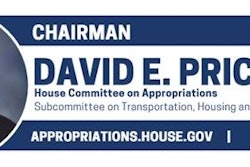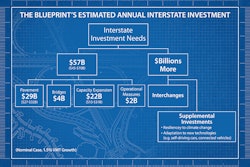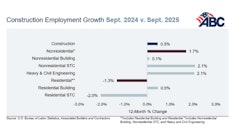The U.S. House has passed H.R. 3055, which included Chairman David Price’s (D-NC) Transportation, Housing, and Urban Development (T-HUD) FY 2020 Appropriations bill, which provides $137.1 billion in budgetary resources for American communities. House passage of the legislation marked Chairman Price’s first successful management of the bill as Chair and reflects the commitment from the new Democratic Majority to responsibly fund our government. The bill makes record levels of investment in infrastructure—including a renewed focus on affordable housing—improves safety, protects vulnerable populations, and bolsters resilience to climate change.
“The American people sent us to Washington with a new House majority, trusting that we would expand opportunity with thoughtful, sound policies that improve the lives of our constituents,” Price says. “That’s exactly what this year’s transportation and housing funding bill delivers.
It makes forward-looking investments in our housing and transportation infrastructure, while ensuring concerted attention to safety, the needs of the most vulnerable, and resilience. It will benefit all American communities – urban and rural – and lay the foundation for economic growth and opportunity. I’m thankful for the collaborative effort by all our members to pass the bill on the House floor and look forward to working with my Senate colleagues to enact a final measure into law.”
Key Components, FY 2020 Transportation and Housing Funding Bill
The Transportation, Housing and Urban Development, and Related Agencies bill funds the Department of Transportation, the Department of Housing and Urban Development, and other related agencies. The bill invests in America’s infrastructure, improves transportation safety, protects vulnerable populations, builds resilience to climate change, and expands access to safe, affordable, and fair housing.
This FY 2020 legislation provides $137.1 billion in total resources, an increase of $6 billion above the 2019 enacted level and $17.3 billion above the President’s budget request. A full summary of the bill can be found here. A state by state analysis of the funding increases for selected major programs compared with FY 2019 funding levels can be found here.
Improves Safety of Transportation and Housing
- Aviation Safety: In response to the Boeing 737 Max 8 incidents the bill provides the Federal Aviation Administration (FAA) resources to hire more inspectors, engineers and technicians to oversee the Organization Designation Authorization process and other safety functions at the FAA. Line: FAA, Aviation Safety: $1.6 billion (+$267M, +20%)
- Creates a new Highly Automated Systems Safety Center of Excellence: $10 million (new)
- Creates a new DOT-wide center for expertise in human factors, computer science, machine learning, sensors, and other technologies involving automated systems to support all modes (rail, auto, transit, aviation, maritime) and to audit, inspect and certify highly automated systems to ensure safe operation.
- Highway Safety: National Highway Traffic Safety Administration
- $1.01 billion (+$43.5 million)
- Includes $86 million for enforcement and rulemaking activities, including vehicle defect investigations (more than double the Administration’s request).
- Improves Housing Quality: Mitigates lead paint and addresses carbon monoxide poisonings in public housing
- HUD, Lead and Healthy Homes: $290 million (+$11M, +4%)
- Includes a pilot for an improved housing quality inspection process and implement relevant GAO recommendations: $28 million (+$14 million, +50%)
- Increases grant funding for public housing authorities to mitigate lead-based paint hazards, address carbon monoxide poisoning, mold, and other household hazards: $50 million (+$25 million, +50%)
Invests in Infrastructure
- National Infrastructure Investments (BUILD/TIGER): $1 billion (+$100M, +11%)
- Discretionary Airport Improvement Program grants: $500 million in additional funding above authorized level (equal to last year)
- Discretionary Transit Infrastructure Grants: $750 million above authorized level for buses, bus facilities, and rail state-of-good-repair projects (+$50 million)
- Intercity Rail Infrastructure
- Competitive rail grants: $710 million (+$40 million)
- Amtrak: $1.99 billion (+50 million)
- Improves access to affordable housing and strengthens communities.
- HUD, HOME: $1.75 billion (+$500M, +40%)
- HUD, Community Development Block Grants: $3.6 billion (+$235M, +7%)
- HUD, Choice Neighborhoods: $300 million (+$150M, +100%)
- Fully funds Tenant-based Rental Assistance renewals: $21.4 billion (+$1.1B, +5%)
- Fully funds Project-based Rental Assistance renewals: $12.2 billion (+$743M, +6%)
- HUD, Public Housing Capital Fund: $2.8 billion (+$80M, +3%)
- HUD, Native American Programs: $860 million (+$40M, +4%)
- HUD, Fair Housing and Equal Opportunity (program): (+$10M, +15%)
- HUD, Fair Housing and Equal Opportunity (staffing): (+$7M, +10%)
- NeighborWorks: $170 million (+$18M, +12%)
Protects Vulnerable Populations
- HUD, Housing for the Elderly: $804 million (+$126M, +18%)
- HUD, Housing for the Disabled: $259 million (+$74M, +40%)
- HUD, Homeless Assistance Grants: $2.806 billion (+$170M, +6%)
- HUD, Housing Opportunities for People with AIDS: $410 million (+$17M, +4%)
- HUD, Tenant-Based Rental Assistance, Family Unification Vouchers: $40 million (+$20 million, +100%)
- HUD/VASH for Homeless Veterans: $42 million (+$2M), HUD/VASH for Homeless Native American Veterans: $5 million (+1M, +25%)
- Mixed Immigration Status Rule: Blocks the administration’s public housing rule change on undocumented immigrants in affordable housing, which would threaten the housing tenure of 55,000 children who are citizens or legal residents.
- Protects the Equal Access Rule: Prohibits attempts to sanction LGBTQ discrimination in HUD-subsidized shelters.
Mitigates and Responds to the Impacts of Climate Change
- Lays the framework to fully integrate resiliency into base programs at DOT and HUD.
- Requires all HUD grantees to develop a resiliency plan as part of the consolidated planning process.
- Provides $1 million for a Transportation Research Board study to develop a resiliency metric for infrastructure projects.
- Encourages all transportation and housing construction projects to use most current building codes or engineering standards and integrate resiliency into projects funded under this bill.
- Prohibits NHTSA and EPA from finalizing a rule that would roll back fuel-economy standards and lead to increased greenhouse gas emissions from vehicles.



















